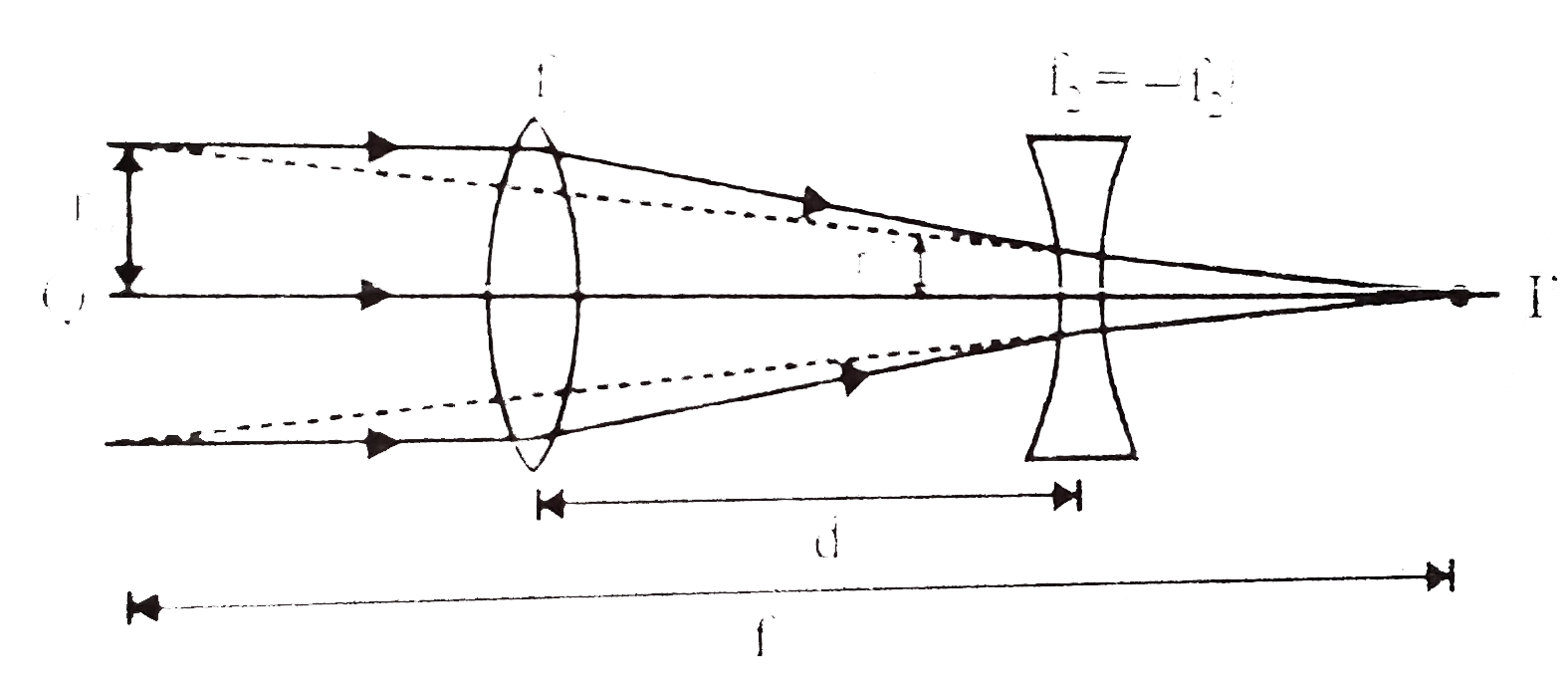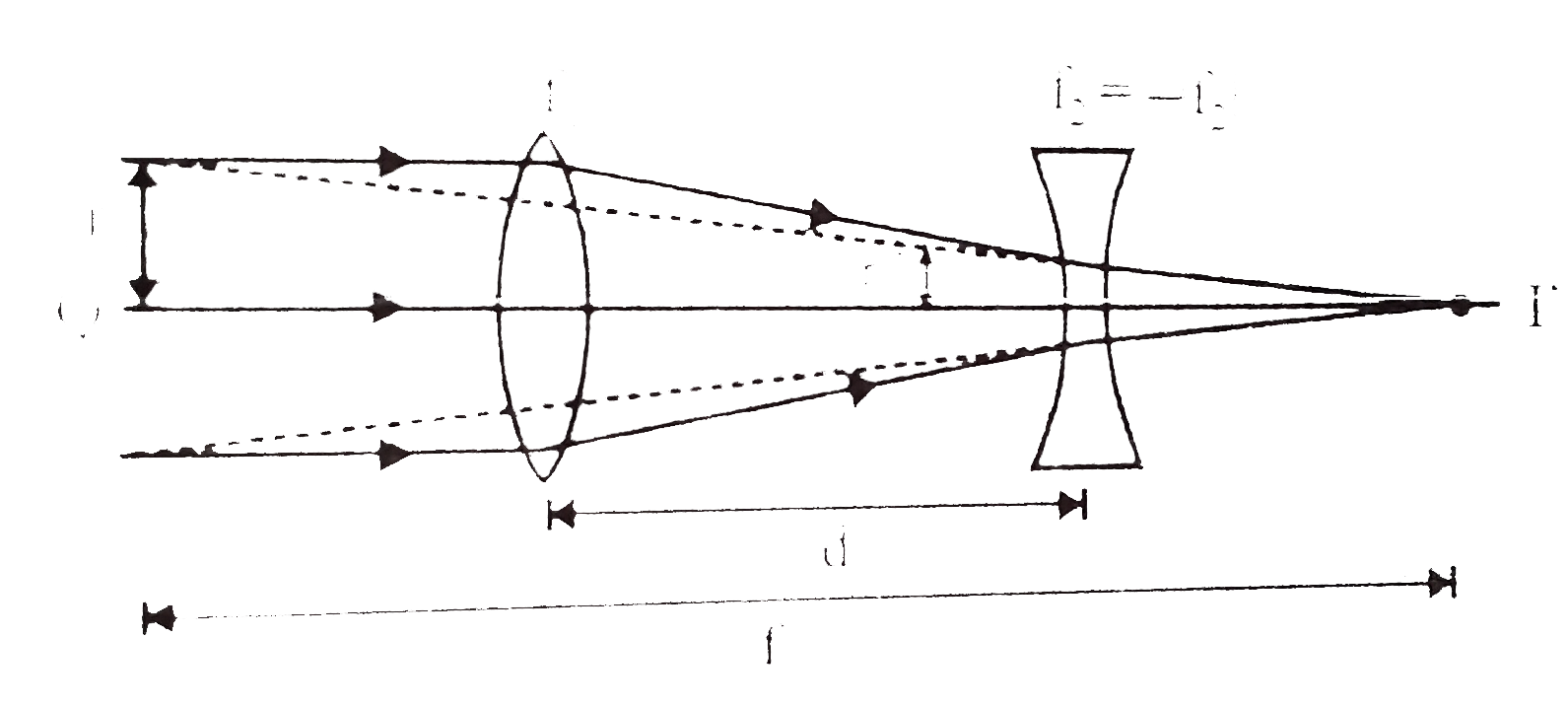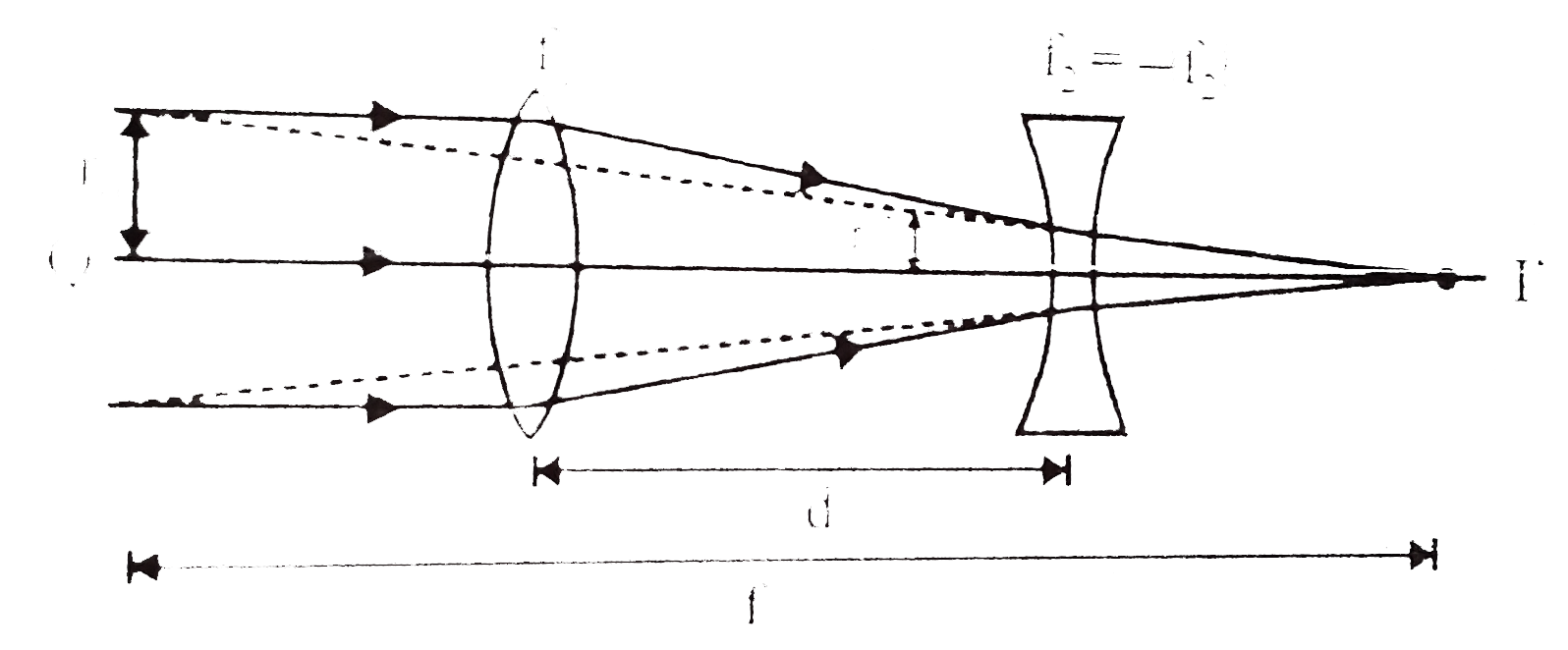The following figure from shows version of a zoom.The converging lens has a focal length f1and the diverging lens has focal length f2=−|f2|.the two lens are separated by a variable distance d that it is always less than f1,also the magnitude of the focal length of the diverging lens satisfies the inequality
|f2|>(f1−d).

if the rays that emerge form the diverging lens and reach the final image point are extended backward to the left of the diverging lens,they will eventually expand to the original radius roat the same point.Q.To determine the effective focal length of the combination lens consider a bundle of parallel rays of radius r0entering the emerging lens.
the effective focal length f is given by
f1|f2||f2|−f1+d
f1f2f1−f2−d
f1f2−f1+d
f2f1+f2+d
The correct Answer is:A
Step by step video, text & image solution for The following figure from shows version of a zoom.The converging lens has a focal length f_(1)and the diverging lens has focal length f_(2)=-|f_(2)|.the two lens are separated by a variable distance d that it is always less than f_(1),also the magnitude of the focal length of the diverging lens satisfies the inequality |f_(2)|gt(f_(1)-d). if the rays that emerge form the diverging lens and reach the final image point are extended backward to the left of the diverging lens,they will eventually expand to the original radius r_(o)at the same point.Q.To determine the effective focal length of the combination lens consider a bundle of parallel rays of radius r_(0)entering the emerging lens. the effective focal length f is given by by Physics experts to help you in doubts & scoring excellent marks in Class 11 exams.
Similar Questions
Knowledge Check
- Question 1 - Select One
The following figure from shows version of a zoom.The converging lens has a focal length f1and the diverging lens has focal length f2=−|f2|.the two lens are separated by a variable distance d that it is always less than f1,also the magnitude of the focal length of the diverging lens satisfies the inequality
|f2|>(f1−d).

if the rays that emerge form the diverging lens and reach the final image point are extended backward to the left of the diverging lens,they will eventually expand to the original radius roat the same point.Q.To determine the effective focal length of the combination lens consider a bundle of parallel rays of radius r0entering the emerging lens.
To the right of the diverging lens the final image I'formed at a distance S2'given byA(f1−f2)df1−f2+dB(f1−d)f2|f2|+d−f1Cf1−f2+df1−f2D(d−f1)f2f2−f1−d - Question 2 - Select One
The following figure from shows version of a zoom.The converging lens has a focal length f1and the diverging lens has focal length f2=−|f2|.the two lens are separated by a variable distance d that it is always less than f1,also the magnitude of the focal length of the diverging lens satisfies the inequality
|f2|>(f1−d).

if the rays that emerge form the diverging lens and reach the final image point are extended backward to the left of the diverging lens,they will eventually expand to the original radius roat the same point.Q.To determine the effective focal length of the combination lens consider a bundle of parallel rays of radius r0entering the emerging lens.
AT the point where ray enters the diverging lens ,the radius of the ray bundle decreases toAr0'=(f1−df1)r0Br0=(f1−df1)r0Cr0'=(f1−f2f1)r0Dr'0=r0 - Question 3 - Select One
The power (P) of a lens of focal length (f) is given by
AP = fBP=1fCP=−1fDP=−f
A converging lens of focal length f1 is placed coaxially in contact with a diverging lens of focal length f2((f1>f2). Determine the power and nature of the combination in terms of f1 and f2.
View SolutionA convex lens of focal length f1 is kept in contact with a concave lens of focal length f2. Find the focal length of the combination.
View SolutionA converging lens is kept coaxially in contact with diverging lens--- both the lenses being of equal focal lengths. What is the focal length of the combination ?
View SolutionTwo thin lenses of focal lengths f1andf2 are placed in contact. The focal length of the composite lens will be
View SolutionIf f is focal length of the lens, then the power of a lens is equal to
View Solution


